That. Just. Happened.
You’re sitting there staring out of the windshield in complete disbelief. Quite a lot just went down in the past one second, and you’re struggling to add it up. The cars have come to a stop. Time might be standing still. You may be in shock. You were just involved in a car crash. Now what? Let’s examine what to do after a car accident.
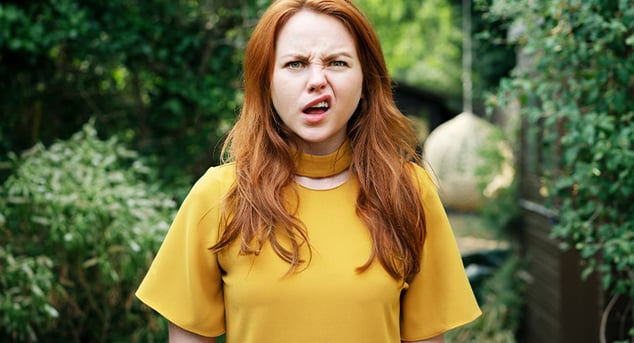 Here’s a guide to help, steer, warn and hopefully prevent you from accidentally doing more damage after you exit your car in a road accident.
Here’s a guide to help, steer, warn and hopefully prevent you from accidentally doing more damage after you exit your car in a road accident.
Let’s start with this handy Car Accident Checklist (you can also take a screenshot so it's easy to retrieve). Print, read and throw that in your glove box for future use along with your vehicle registration and insurance card. Each state has certain laws for what to do in a car accident; this link is for California but it can inspire you to check your state laws. Since launching Toggle® Auto customizable insurance, we’ve been a little obsessed with helping drivers file auto insurance claims as effortlessly as possible, so we definitely regard ourselves as experts on the matter.
Back to the accident - let’s get started covering all of your bases before leaving the scene. Follow these steps to give you some comfort and confidence and build your accident coping muscles for helping you to move forward.
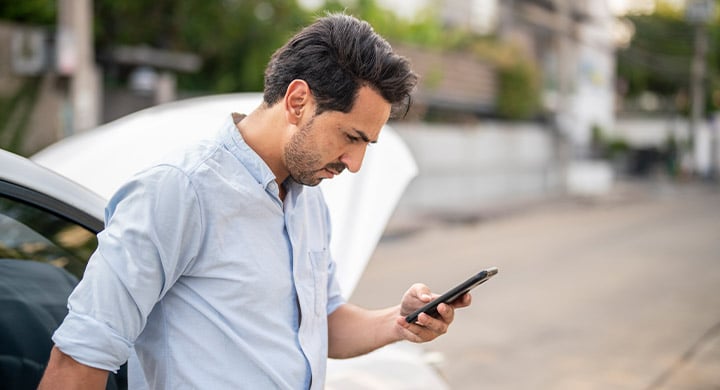 Get your car off the road.
Get your car off the road.
If your car is drivable, and nobody is injured, go ahead and move it off of the roadway to a safer, well-lit area. Do not leave the scene, obviously, as you could face criminal penalties as a “hit-and-run driver.” But you knew that. Get those hazard lights on and keep the seat belts buckled for the moment for maximum accident scene safety. If the other car involved in the wreck is sitting out there on the road, another car could hit them, which hits your car and so on. Check to see if it’s safe to exit your car.
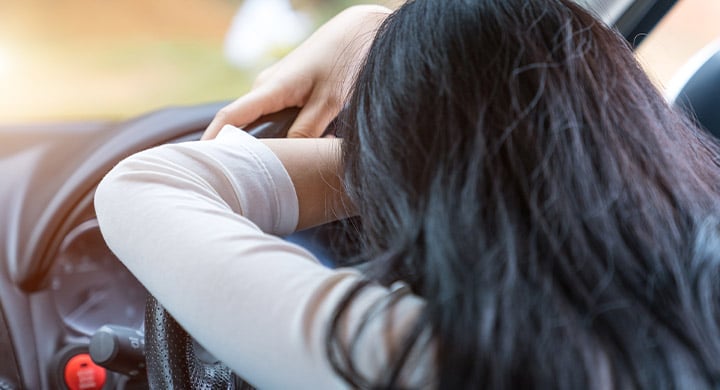 Deep breaths. Steady yourself.
Deep breaths. Steady yourself.
Take a few deep breaths. Inhale slowly. Exhale and relax. You need to assess the situation, and your brain needs oxygen to calmly process information, especially if the scene is in chaos. Try to stay composed, no matter how the other driver is behaving. They may be really emotional. They may be screaming. They even may be declaring that this is ALL your fault. But we don’t know that yet, so do not admit fault or apologize or take the blame. And if you forgot your breathing techniques, we have some really good, simple ones you can follow.
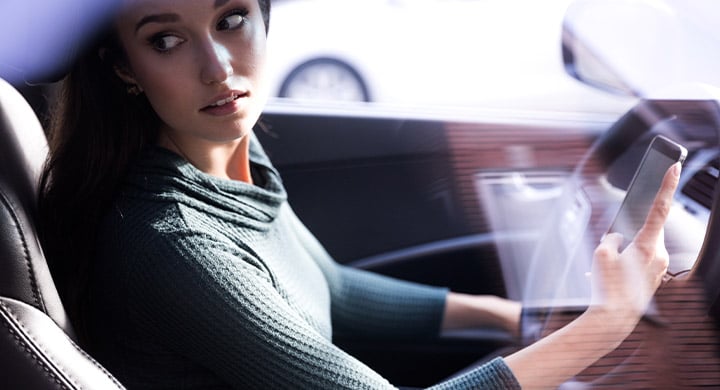 Check everyone for injury.
Check everyone for injury.
The most important thing is to quickly check every person involved in the crash for car accident injuries, including the people in the other car. Make sure they are alert. Try to reassure them. Take note of any injuries that look serious and immediately call 911 after an accident.
People, including you, may be in shock. Trauma from even a seemingly mild car accident can cause your body to experience shock. If you’re in a state of shock, an injury or pain can take a few hours or days to surface, so it’s important to see a doctor if you need one.
The Mayo Clinic has a quick overview of medical conditions such as shock for you to understand symptoms and the physiology.
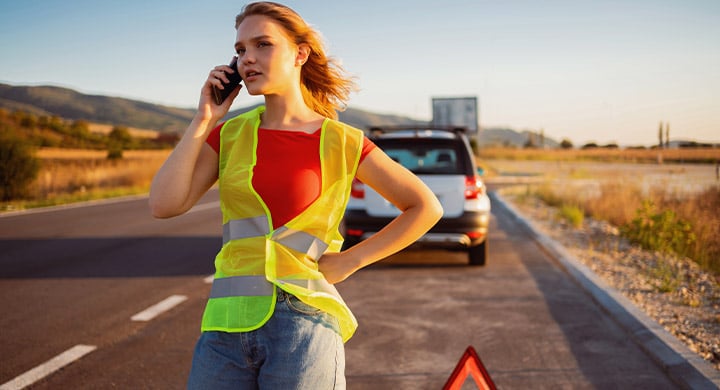 Get out your car accident emergency kit.
Get out your car accident emergency kit.
Car accident kits tend to include first aid equipment and tools to escape your vehicle. Not having some of these essential items could put you at greater risk of suffering injuries or worse. Something you should find in it is a reflective vest to protect you from passing cars—if appropriate, put it on now before you leave the vehicle. You should also find the first aid kit, reflective triangles, water, fire extinguisher and external batteries to charge your phone. One of the most life-saving aspects of this emergency kit is your first aid supplies; the more first aid items you can fit, the better.
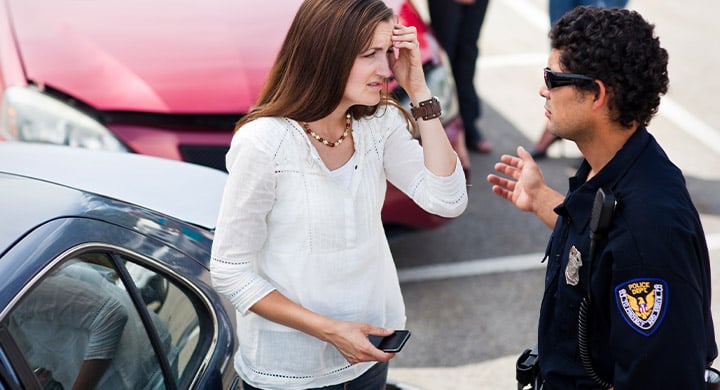 Get a police report.
Get a police report.
This is an important document. Ideally, filling out a police report and securing the police report number are important steps to take after a crash, whether or not you plan on filing an insurance claim. It may seem more convenient to take matters into your own hands than to involve the police, but even for a minor accident, we think it’s better to have documentation on hand that sorts out what really happened.
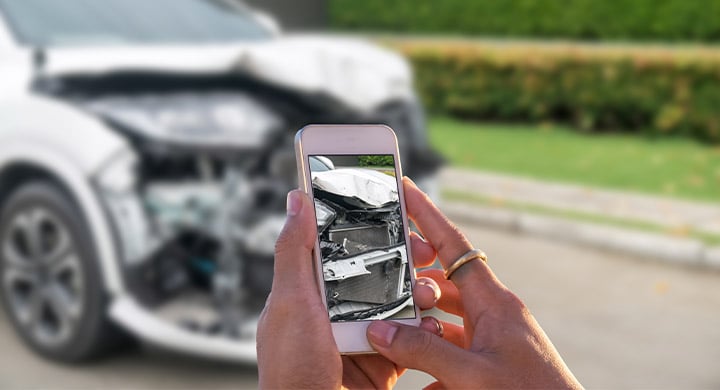 Take photos.
Take photos.
Use your phone to take pictures of your car, the other cars involved and the scene of the crash and document the accident. Wondering what’s the best way to capture car damage in a quick photo shoot? Glad you asked! You just need to take four pictures of each car involved. Take a picture of each corner of the car from around six feet away. (That’s about the length of a yoga mat, or the width of a king-size bed.)
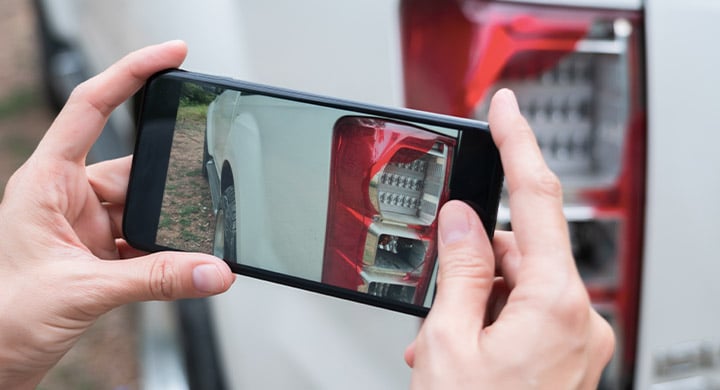 Keep in mind: It’s important to make sure you capture the full license plate of each car involved in at least one picture.
Keep in mind: It’s important to make sure you capture the full license plate of each car involved in at least one picture.
After you’ve got the cars covered, it can’t hurt to take additional photos for further context. Snap pics of nearby mile markers, street signs or intersections—these could all help during the insurance claims process. As you’re documenting, watch what you’re doing and stay safe. Getting run over on the back of getting in a wreck would be the wrong kind of extra.
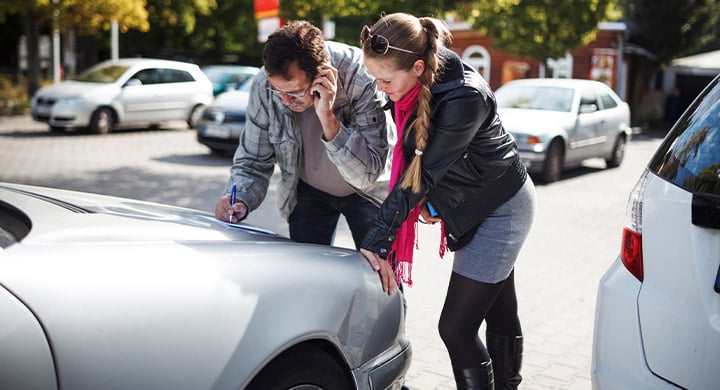 Exchange details.
Exchange details.
Before the other driver leaves, exchange insurance information (including the policy number) and driver’s license number, at the bare minimum. Ideally try to get the contact information and email addresses for all parties involved. If possible, getting their full name and contact details—like a phone number, license plate number and a photo of their driver’s license—can be super helpful for filing a claim.
But if you’re the victim of a fender bender, the other driver might have sped off before you could get their details (the dreaded hit-and-run). Check around for surveillance cameras, and jot down the location details. With any kind of car accident, look around for a witness and get their information; people involved in accidents may remember things differently or change their stories as time goes on. Things like witness statements and driver’s license information or photos of businesses next to where the accident occurred could help your car insurance provider identify the other driver. All this is super important and qualifies as officially documenting the accident for insurance purposes.
 Contact Toggle.
Contact Toggle.
Please notify us as quickly as possible after an auto accident. We have an award-winning claims service, and we want to help. Go straight to the Claims page to submit a claims form for review. Be ready to provide the information you’ve collected from the scene of the accident—like photos of the vehicles and a police report. After entering the basic information, a claims adjuster will reach out to you. They will likely ask for more details about the loss to help them process the claim. Note: all claims are subject to the policy limits you selected, your policy deductible when applicable, and other terms and conditions.
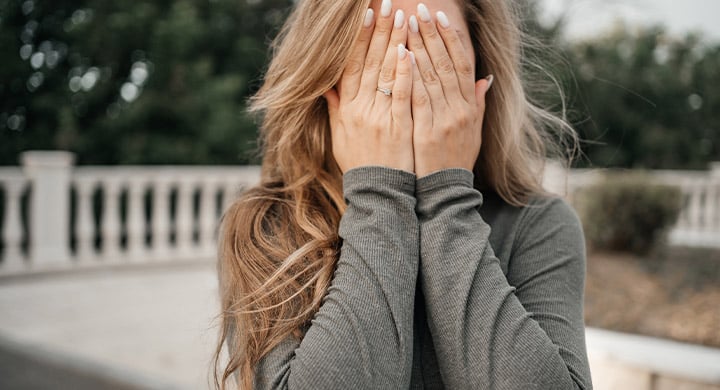 This may feel overwhelming. But don’t worry, we’re here to assist you with each step of the claims process. For starters, if your car isn’t drivable from the scene, we could send a tow to get it to a nearby repair shop. Just make sure you’ve included collision coverage on your policy.
This may feel overwhelming. But don’t worry, we’re here to assist you with each step of the claims process. For starters, if your car isn’t drivable from the scene, we could send a tow to get it to a nearby repair shop. Just make sure you’ve included collision coverage on your policy.
Well, those are the key things you need to know to help you in the unlikely case of a car crash.
One way to help prevent accidents is to keep your car in tip-top shape. Since we know about this sort of thing, we wrote our ideas in this handy blog about DIY car-care. This could help prevent accidents due to faulty vehicles. Stay safe, but let us know if you need a hand. We will be at gettoggle.com.
The information included in this blog is for informational purposes only and is not intended as professional or expert advice. It is based on research and the collective experiences of the Toggle Team and has not been verified by any academic institutions, government organizations, or world-renowned scholars, but it does make a lot of sense and we do hope you find it useful. We encourage you to use your own good judgment about what’s appropriate for you.
Links to third-party websites are provided for your convenience only. Toggle has not independently verified any of the information provided therein and makes no representations about the enduring accuracy of such information or any content.


 Get your car off the road.
Get your car off the road. Deep breaths. Steady yourself.
Deep breaths. Steady yourself.  Check everyone for injury.
Check everyone for injury. Get out your car accident emergency kit.
Get out your car accident emergency kit. Get a police report.
Get a police report. Take photos.
Take photos.
 Exchange details.
Exchange details.  Contact Toggle.
Contact Toggle.